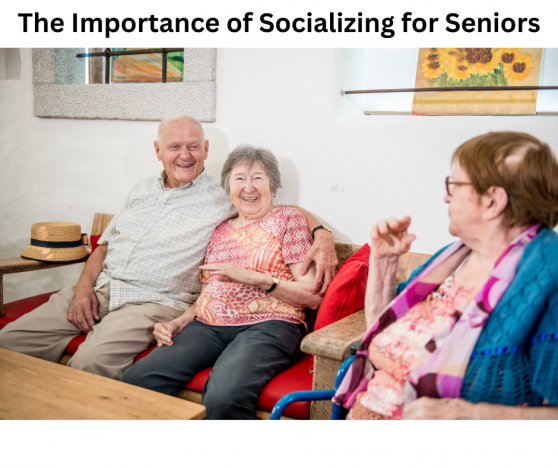
People tend to focus on physical concerns exclusively when talking about health, by bringing up topics such as diet, exercise, regular physicals and checkups with the doctor, and managing diseases and other ailments with medications or the appropriate treatments. And while these things are of course very important for people of all ages when maintaining ongoing health, one thing that gets overlooked is the importance of socializing. Studies have shown time and time again that regular socializing is tied to positive benefits for both physical and mental health.
While the benefits of socializing are present at every age, it is arguably more important for senior citizens. Social outings and activities can both reduce loneliness and isolation, while also having a positive effect on cognitive function, emotional well-being, and physical factors such as mobility. Anecdotal evidence, statistical analysis, and many different studies have all shown correlations between older adults engaging in socialization and a positive impact on memory and other brain functions.
Isolation and loneliness can cause mental health impact to people of any age, but older adults are uniquely at risk due to aging factors like declining mobility, changes in their social structure, and loss of family and friends. Some of the negative effects of long-term isolation or loneliness include depression, increased risk of cardiovascular disease, increased risk of stroke, high blood pressure, and increased risk of dementia. In fact, long term social isolation can increase someone’s risk of dementia by up to 64%. And for those already suffering from a form of dementia, a lack of socialization can not only exacerbate the symptoms, but it can increase the rate at which symptoms progress, causing the disease to become more serious much sooner than it otherwise might have.
Social isolation means having infrequent social contact, but you can have social contact and still feel lonely. You may feel that you have no one to truly talk to, or that you lack companionship, or that your interests and ideas are not shared or celebrated by the people around you. Research confirms that increased interaction and social activity are associated with positive outcomes.
Many people feel that by using their brain’s functionality by doing things like sudoku or crossword puzzles can keep their brains at optimal health. But our brains weren’t made to simply think up words or solve puzzles. Brains are for dealing with everyday life, which includes conversation, laughing, and simply spending time with others. Visiting with others and attending social functions can be just as beneficial as crossword puzzles in keeping our brains supple and healthy.
Research has shown that social isolation can worsen the memory deficit that is developed as someone deals with Alzheimer’s or other types of dementia. But the flip side of that coin is that socialization in older adults can stop that deficit from growing as quickly as possible. Studies have noted the benefits of regular conversation on improving memory and other functions. But not all socialization is equal. Talking and making friends can provide a benefit, but competitive or argumentative conversation does not have the same impact.
Senior Helpers of Gilbert & Chandler's Companion Care service options are flexible and customizable according to your specific situation, and as part of our personalized approach, we customize a care plan to match your needs. We can also provide transportation to attend Senior Centers, local bingo, or other activities. Contact us today or give us a call for more information 480-908-0976 for more information.